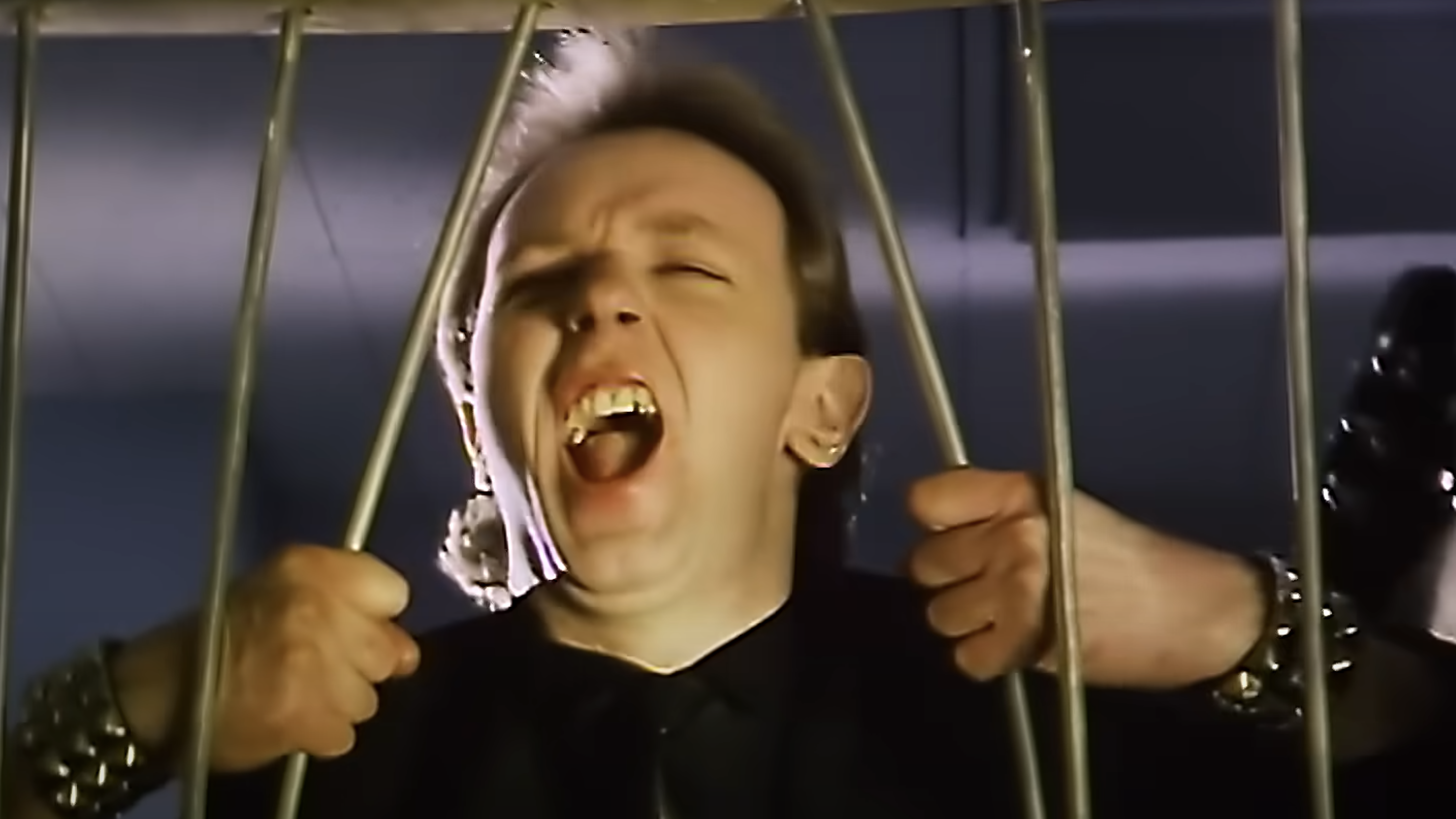
In 1980, a golden year for heavy music, Judas Priest delivered the goods with their classic album British Steel.
There were many other great hard rock and heavy metal albums released that year, including AC/DC’s Back In Black, Motörhead’s Ace Of Spades, Iron Maiden’s self-titled debut, Ozzy Osbourne’s solo debut, Blizzard of Ozz, and Black Sabbath's first record without Ozzy, Heaven And Hell.
But if there was one album that truly defined the pure essence of heavy metal, it was British Steel.
It was also the most important record that Judas Priest would ever make.
As singer Rob Halford would reflect: “After British Steel, Priest were the premier metal band in the world.”
It was an unlikely success story given how slowly Priest’s career had progressed.
The band had formed in Birmingham in 1969, taking its name from the Bob Dylan song, The Ballad Of Frankie Lee And Judas Priest.
But it was only after five years’ toil on the UK club circuit that they released their first album, Rocka Rolla, in 1974 — and another three years before they bagged a deal with major label CBS.
Over the course of their next three albums, Judas Priest developed into one of the best and most popular metal bands in Britain — with a unique style based on the dual guitars of K.K. Downing and Glenn Tipton and the shrieking high-octane vocals of Rob Halford.
In September 1979 the live album Unleashed In The East gave them their first UK top 10 hit. But the really big breakthrough came a year later with British Steel.
The album's title was first suggested by bassist Ian Hill, claiming a kinship with the striking workers in the nationalised steel industry. In addition, Glenn Tipton had once held a job at British Steel plant in the early ’70s.
Hill's title was inspirational, while K.K. Downing reckoned it fitted perfectly with the band’s music, which he described — with a straight face — as “absolute unadulterated British steel”.
In the first months of 1980, Priest set to work with producer Tom Allom at the studio in Tittenhurst Park in Ascot, Berkshire.
This grand country pile was then owned by Ringo Starr, and had previously been home to John Lennon and Yoko Ono before they moved to New York.
With Ringo living in France, Priest had the run of the house. This proved fortunate, as the studio itself was small and hardly conducive to creating the huge sounds the band envisaged.
To get these sounds they used almost every space and every thing in the building.
For added resonance, guitars were recorded in tiled bathrooms, and drums set up in the enormous marble entrance hall.
For the track Metal Gods — Halford’s sci-fi vision of robot monster invasion — steel trays filled with cutlery were banged on the kitchen’s stone floor to create the sound of “dragging iron feet”, and a billiard cue was swiped through the air to punctuate the line “reaped by robot scythes”.
“It was a fun album to do," Tipton said. “We were always willing to experiment. We attempted anything.”
Most surprisingly, they incorporated a reggae influence into one song, The Rage.
“Reggae meets metal!” Halford said. "It sounds absurd, but it works.”
There was also what Tom Allom referred to as a “pop groove” to a couple of the tracks, Living After Midnight and Breaking The Law.
The latter featured more dramatic sound effects. “The smashing glass, the police sirens — it’s telling a story with sound,” Halford said. “You’re seeing a movie running through your head.”
As Tom Allom declared: “Every heavy metal album needs an anthem.”
British Steel had several, including United, a hymn to metal fans complete with football terrace-style chants.
Priest wanted songs that would sound great on radio, and to this end Living After Midnight (written on the spot at Tittenhurst while Rob Halford was sleeping) went straight to the chorus from the opening riff.
Tellingly, Halford commented, “Americans just love that kind of stuff.”
British Steel produced three UK hit singles, and Living After Midnight would prove to be a breakthrough track on US radio, but this was wholeheartedly and unashamedly a straight-up no-messing heavy metal album.
The opening salvo Rapid Fire was a fearsome statement of intent, with arguably the greatest opening couplet of any metal song: “Pounding the world like a battering ram/Forging the furnace for the final grand slam.”
Grinder boasted one of the all time classic head-banging riffs, and Steeler rounded off the album at a ferocious gallop, with Tipton and Downing trading screaming licks, and Halford playing the pantomime villain, warning of a “masquerader in his lair” wanting to “tangle in your hair”. Heady stuff indeed.
Halford believed that the setting was instrumental in inspiring his band's greatest work. He remembered vividly the day he first entered the White Room at Tittenhurst, where John Lennon was filmed singing Imagine at a white piano, Yoko at his side.
“For me,” Halford said, “it was a very emotional thing, and it played a part in us making a great record.”
British Steel reached No.4 the UK and went on to sell half a million copies in the US. It has since assumed iconic status.
Such as its influence on successive generations that Pantera, one of the pre-eminent metal acts of the ’90s, tried to recapture the spirit of British Steel on their 2000 homage Reinventing The Steel.
Rob Halford called British Steel “a very important record for the band”.
More than that, it was a lodestar for the whole genre of heavy metal.







